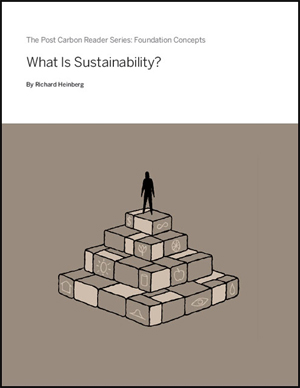
What Is Sustainability?
March 15, 2012
As a contribution to this ongoing refinement of the concept, I recently formulated five axioms (self-evident truths) of sustainability. My goal was simply to distill ideas that had been proposed previously and put them into a concise, easy-to-understand form.
The First Axiom
Any society that continues to use critical resources unsustainably will collapse. Exception: A society can avoid collapse by finding replacement resources. Limit to the exception: In a finite world, the number of possible replacements is also finite.
Archaeologist Joseph Tainter, in his classic study The Collapse of Complex Societies (1988), demonstrated that collapse is a frequent if not universal fate of complex societies and argued that collapse results from declining returns on efforts to support growing levels of societal complexity using energy harvested from the environment. Jared Diamond’s popular book Collapse: How Societies Choose to Fail or Succeed (2005) similarly makes the argument that collapse is the common destiny of societies that ignore resourse constraints. This axiom defines sustainability by the consequences of its absence—that is, collapse.
This is a chapter from The Post Carbon Reader: Managing the 21st Century’s Sustainability Crises (2010).
